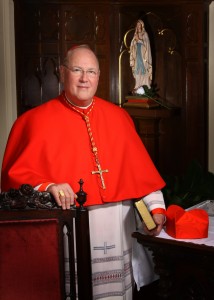The formation of a new government has led to an unexpectedly tense and divisive Federal Committee

From left to right: Regional secretaries of Oleria, Sadaria Occidentalis and Sadaria Orientalis after the meeting
Today at noon a meeting of the Federal Committee of COSIRA, the party's highest management body, was called, which includes the five regional secretaries, in addition to the two General Secretaries - one without the right to vote - and five members elected by the militants, to decide on the future government after the last general elections, in which COSIRA has unwittingly become the "kingmaker".
On the table, according to various sources, there were two options: maintaining the current coalition with the NPLS, but giving prominence to the latter after the electoral results; or form a new coalition government with the MTS.
Apparently, the MTS would have contacted Pyrgopolynices Auspex to propose a change in the government, entering to govern in coalition with them and also dividing the Consulship equally. As proposed by the MTS, the agenda of this new government would focus on the progressive elimination of Hosianism from Selucia, as well as progress towards decentralization and changes in the nation's economic system. But Pyrgopolynices Auspex, despite being the party's general secretary, is obliged by the formation's own statutes to consult any government pact with the rest of the Federal Committee, and according to several witnesses present at the meeting, it has been everything less smooth.
Faced with the more open position to negotiate to reach agreements manifested by the regional leaders of Corgana - its regional secretary, Ateia Polybius, is a former Procurator of the region and is known for her willingness to let the ArchPatriarch return to the region - and Catalia, their counterparts from both Sadarias and Oleria - currently in the position of Procurator after revalidating their position in the last elections - have manifest their firm refusal to approve a government pact with a party that they consider to have "constantly demonized and attacked" them, and whose sole purpose is the implantation of religion in all strata of society. Based on these premises, the talks have lasted for several hours, until finally the Federal Committee approved by a narrow majority of 6 to 5 the continuation of the government pact with the NPLS. As this newspaper has learned, although the regional secretaries of Corgana and Calatia, and the elected representatives of both provinces in addition to the Sadaria Occidentalis one have voted in favor of agreeing a government with the MTS, the strong opposition of the representatives of the two strongest federations - Oleria and Sadaria Orientalis, which together provide 130 of the 197 seats in the political formation -, together with the regional secretary of Sadaria Occidentalis, have ended up convincing Pyrgopolynices Auspex to refuse to negotiate anything with the MTS. In his appearance before the media stationed in front of the party headquarters, the Secretary General thanked the MTS for its willingness to negotiate a coalition government, although it was finally rejected by a qualified majority.
In a joint appearance after the meeting at the party's headquarters, the three regional secretaries opposed to changing their government partner have affirmed that they feel "completely reassured" by the decision taken by the party. Collybiscus Nabor, the current Procurator of Oleria, has declined to make further statements, as his closeness to MTS on federalism issues is well known in the political world. However, Salvia Bellus, current leader of the opposition in the Sadaria Orientalis parliament and former Procurator of the region, has affirmed that the rejection of the MTS is not given by its previous position of confrontation with COSIRA, an issue that they consider "mentality of young children "If not for the fact that, for them, one of its ultimate purposes is the total elimination of the need for religion in the nation, while they consider that the MTS only intends to make a" card game "by substituting some religions by others.
"While we agree with the MTS on some issues such as the need to federalize our nation or the protection of minorities, we cannot forget their past legislative actions, which they have not retracted, to get an idea of future ones. Attempts to re-approve the death penalty, to cut workers' rights, to deny climate change, to grant privileges to the nobles ... These are actions that cannot hide the direction they are going. And it is something that our voters would never understand. Although a coalition with the NPLS is not the most desired, it is a lesser evil compared to a coalition with the MTS, from which only they would emerge strengthened. And although in a coalition with the NPLS our party may obtain less representation in the Executive, we consider that we must put our ideas ahead of the armchairs ".
Some political analysts also consider that these three leaders do not want to risk derision in their respective territories, since while Oleria's Procurator maintains the coalition with the NPLS that gives him the majority in the region, the MTS has been ruling in Sadaria Occidentalis for several decades and COSIRA must be sold as opposition and not as support, while in Sadaria Orientalis is the other great fishing ground for votes for the party and they do not want that governing with a conservative party take its toll on them and jeopardize a possible return to the regional government
Asked Pyrgopolynices Auspex about the matter at the end of the meeting, he has limited himself to answering that "the resolutions of the Federal Committee of the party must be respected" although internal sources fear that a growing desire for power is what has led him to negotiate with the MTS, after their offer to give him one of the two Consulships.








